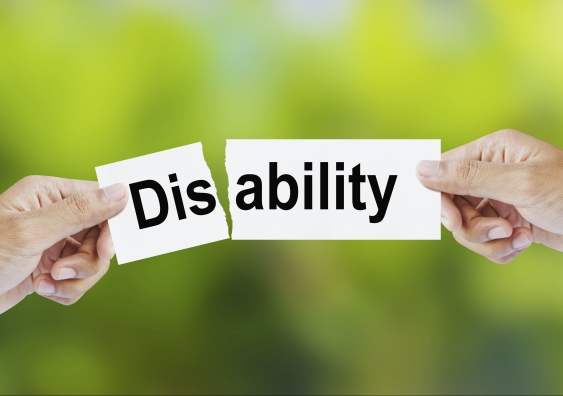New MOOCs rethink disability
Two new innovative courses being offered at UNSW are challenging the way we think about disability and what it means to have a good life.
Two new innovative courses being offered at UNSW are challenging the way we think about disability and what it means to have a good life.

Wendy Frew
UNSW Media Office
02 9385 1370
For Melanie Schlaeger, one of the fundamental concepts around disability is putting people first and disability second.
“Instead of thinking about disabled people, we should think about people, who have a disability,” says the NSW advocacy worker.
That means thinking about what people with a disability can do, rather than what they can't do, she says. It also means thinking about the support they need in the same way we think about the needs of other sections of the community - as services, rather than as 'help' or charity.
It’s a recalibration of the way people think about disability that Schlaeger, who has cerebral palsy, hopes will emerge from two new online courses being offered by UNSW’s Faculty of Arts and Social Sciences.
Schlaeger is one of a number of people with a disability who are part of an advisory board working with the UNSW academics running the courses.
“Everyone in society needs ‘help’ of some kind even if we don’t perceive it that way,” says Schlaeger. “For example, we go to Woolworths to buy fruit and vegetables because we can’t grow them ourselves. We have to rely on farmers to grow them. But we don’t think about the farmers as helping us.”
The first of the free, six-week Massive Open Online Courses (MOOC) – Disability and a Good Life: Thinking through Disability – goes live on 16 May. The second course – Disability and a Good Life: Working with Disability – starts on 1 August.
The MOOCs are open to everyone, including high school students or career changers.
Associate Professor Leanne Dowse and Dr Louisa Smith from the University’s Intellectual Disability and Behaviour Support Program, together with Professor Kelley Johnson from UNSW’s Social Policy Research Centre, and Dr Karen Soldatic from the Centre for Social Impact, have developed the MOOCs.
Dowse, who is also UNSW’s Chair in Intellectual Disability Behaviour Support, says the two MOOCs combine to “make a foundational set of knowledge about disability”.
There have been other MOOCs around the world that have examined issues connected to disability but Dowse believes UNSW’s initiative is a world first because of the emphasis on basic concepts and a social understanding of disability.
People who have a disability are part of human diversity
“We know that the way we think about something defines how we act on it,” says Dowse, who has 20 years of experience in the disability sector.
“The first MOOC is about understanding some of the key issues around how we think about disability, for example, how we define it and how we count it,” she says.
“It’s often assumed that people with disabilities can’t have a good life. But what is a good life? We want to explore the ways disability is understood and challenge people to think about what it means to have a good life.”
The second MOOC examines how disability politics and policy, advocacy and activism can inform what we mean by a good life.
Participants can choose their own path through the course materials, which will include written, audio and visual resources. There will be stories from people with disabilities and interviews with leading disability studies experts. Schlaeger will work as a student guide, showing people how she has worked through the course material.
About 2500 people have already registered for the courses, which doesn’t surprise Dowse.
“There is a ground-swell of interest in disability,” she says. “People with a disability are part of human diversity. Worldwide, one in five people have a disability so it is very likely most of us know someone or work with someone with a disability, or have a disability ourselves."